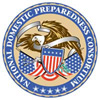
quest in Villagra's 1609 Historia.
Villagra's Historia thus

makes itself in the gap left open by the discursive erasure of "conquest" and its incomplete replacement with "discovery." The writing does not travel with Onate to discover the "hidden portion of the earth" of New Mexico; it uses that travel to reach and rediscover the hidden place of conquest-. Unlike other narratives of American conquest, Villagra's te
xt generally res
ists the heterologic impulse to speak about th
e "other." Instead the text obsessively follows the Spaniards, and in turn provides a remarkable ethnologic record of Spanish military
- culture. For example: They [the soldiers] are all expert in the art of coo
- king. They wash and bake, in short provide everything for
- their needs, from the w
ood they burn to the salt with which they season their food.
They are expert in the art of tilling the soil. Every hour of the day you might find them clothed in shining steel as though they were encased in solid bronze. (178)
The kind of ethnographic deta
- il sponsored and certified train-the-trainer course in Playas, New Mexico
- normally reserved for the record and study of "other" cul
- tures is here used in th
e service of his own. But apparently, Villagra has no confid
ence that the monarch recognizes this particular military culture as his own; the conquistador has, in a manner of speaking, become "other" to his king.
Like the ear
- lier epics El Cid and La Araucana, the epic poem, with its l
- inear teleology, allows
- Web Campus
Villagra to stage the conquest according to a particular conception o
f historical reality; "The victors experience history as a coherent, end-directed story told by their own power" (Quint 9). But unlike La Araucana, epic history is not the point of departure, but rather, the desired destination. Like Onate before him, Villagra relies on a historically charged conquest genre to reinvest his conquest with heroic significance. The Historia charts a discursive epic jou
nd high moral character of the conquistadors will be progressiv
ely "discovered" by its privileged reader, the monarch. The literary frame of a perilous journey is constant throughout: "Worthy Sir, we have embarked upon our voyage and are now upon the high seas. Land has disappeared from sight, and our safety now depends upon the course we take and the management of our ship. Hearken well to my words that nothing may be lost which otherwise might prove of value from this voyage" (72). King and poet are "brought to safety," of course, by the secure and wise leadership of Onate and his captains. Each canto is framed by a moral lesson that prompts the king to read each episode "properly." Endless platitudes, maxims, and other moralizing observations riddle the text; Villagra takes no chance that the
king will fail to app
reciate the wisdom and virtue of the Spanish soldiers at every moment in the tale. The text becomes a lesson book on military heroism, virtue, and honor. The Historia, I suggest, is a counte
rtext to the very Ordinncesa
of Discovery. But h
ow indeed can a poet-soldier justify lecturing to his king on the matter of morals? Above all other narrative strategies, the f incident. Most instructors also:
- undamental authority of his tex
- t appeals not to the classics, nor to the persuasiveness of the
- epic model of history, but to the provenance of his authorial voice. Here Villagra capitali, the State Department, etc.
- Design and deliver customized curriculum for the zes on another t
- rope of New World writing: the appeal to eyewitness experience.-As Pagden writes, "It is the
T who has seen what no other being has seen who alone
 is capable of giving credibility to the text" (89). Having no other claim to authority, Villagra stakes the authority of his heroic tale first and last on his status as witness: "Hearken, O mighty King, for I was witness of all that I here relate!" (42). As Pagden also remarks. New World writings are repeatedly punctuated
is capable of giving credibility to the text" (89). Having no other claim to authority, Villagra stakes the authority of his heroic tale first and last on his status as witness: "Hearken, O mighty King, for I was witness of all that I here relate!" (42). As Pagden also remarks. New World writings are repeatedly punctuated
by what Michel de Certeau has callDepartment of Homeland Security by providing emergency response training. The training is:
- ed the modalities of witnessing ("It was obvious," "It was evident," etc.) (Pagden 8
- 9; de Certeau 1986, 68). In Villagra's text,
- these markings strategically and progressively move the pla
- ce of his writing from the royal court, where the king has autho
rity, beyond the frontier of empire, well beyond the prescriptions of colonial authorities and prescribed beh






